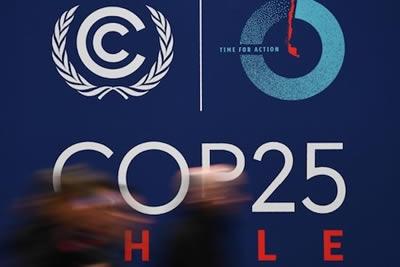UNCTAD supports efforts to promote sustainability, adapt and build resilience against the climate emergency.
Over 80% of the goods consumed around the world are transported by sea, making shipping the engine of the global economy.
Maritime transport relies heavily on bunker fuels that have a high carbon footprint and contribute to the climate emergency facing the world.
One major side effect from the shipping industry is the release of climate-warming gases (such as sulphur oxides) produced from a ship's consumption of bunker fuel.
In the face of the climate risk, the maritime industry has embraced an accelerated environmental sustainability agenda to fast-track an energy transition towards cleaner fuel sources.
A new regulation by the International Maritime Organization (IMO) reducing the limit on sulphur in ships’ fuel oil from 3.50% to 0.5% will take effect on 1 January 2020.
It will be one of the most dramatic fuel regulation changes ever implemented and is expected to bring significant benefits for human health and the environment. On the other hand, it’s expected to increase fuel costs.
“We have to embrace the change to create a healthier planet for all of us,” said UNCTAD Deputy Secretary-General Isabelle Durant, who is leading the organization’s delegation to the UN Climate Change Conference (COP25) in Madrid, Spain.
Trade can be a driver for climate action, she said.
Getting to zero emissions
UNCTAD is part of the Getting to Zero Coalition that is committed to getting commercially viable deep sea zero-emission vessels powered by zero emission fuels into operation by 2030.
The coalition will hold an event on sustainable maritime transport during COP25 on 10 December. The event will examine the prospects of zero-emissions shipping for developing countries and large ocean states or small island developing states (SIDS).
UNCTAD is also cooperating with the World Bank and the IMO to assess the potential implications of carbon dioxide reduction measures on developing countries.
“The same countries that suffer most from climate change might also be the ones that would potentially suffer from higher shipping costs due to more expensive fuel,” Ms. Durant said.
This raises the question of inequality, she said.
“The fact is that we are not all equal in the face of the negative impacts resulting from climate change and environmental degradation,” Ms. Durant added.
According to her, global action against climate change should consider this inequality and ensure the special needs of the most vulnerable economies are duly considered in the quest to reduce shipping emissions to zero.
These include least developed countries and SIDS, where transport costs can reach 21% and 22% of the value of imports, respectively, as opposed to 1% in developed economies, based on UNCTAD data.
Building resilience and adaptation
Discussions at COP25 are also focused on how to bolster actions on resilience and adaption in the face of the severe impacts of the climate emergency.
A round table discussion on accelerating action to build a resilient world at 1.5 degrees Celsius of global warming is scheduled for 10 December.
Ms. Durant, who will participate in the round table discussion, cited the case of the Bahamas, where Hurricane Dorian, the most intense tropical cyclone on record to strike the country.
It resulted in losses worth US$3.4 billion, wiping out over a quarter of the country’s gross domestic product.
Or Namibia, which is experiencing its worst drought in 90 years. The drought has ravaged agricultural production, undermined export crops, triggered food shortages and put pressure on the country’s debt, undermining years of efforts to reduce it.
“In both cases, what needs to be addressed is the development and economic approach to climate and disaster resilience,” Ms. Durant said.
Required measures include economic diversification, which increases the ability of economies to adapt to shocks.
In addition, infrastructure should be built and operated in a way that anticipates, prepares for, and adapts to changing climate conditions, Ms. Durant said.
SIDS are already seeing the devastating effects of climate change, including sea-level rise and coastal erosion, which are affecting their infrastructure and economies.
These countries remain at risk because they do not have the finances to firstly mitigate, and critically, to adapt their infrastructure.
Focus on coastal transport infrastructure
Coastal infrastructure is particularly critical for SIDS, where ports and coastal airports are lifelines for external trade, food, energy and tourism.
“Building the climate-resilience of global ports is of strategic economic and human importance,” Ms. Durant said, “given the potential economic implications of climate-related damage, disruption and delay.”
Ms. Durant will be on the panel of a high-level discussion on climate-resilient transport infrastructure for sustainable trade, tourism and development in SIDS during COP25 on 10 December (watch the discussion)
UNCTAD has been working on the implications of climate change for maritime transportation for over a decade, since 2008, with an emphasis on impacts and adaptation needs of seaports and other coastal transport infrastructure.
Its recent work includes a technical assistance project on climate change impacts and adaptation for coastal transport infrastructure in the Caribbean, focusing on Jamaica and Saint-Lucia.
Some of the project's substantive findings informed the IPCC assessment of climate change impacts at 1.5 degrees global warming, highlighting the risk of marine flooding to coastal transport infrastructure in SIDS, which could occur as early as the 2030s.

